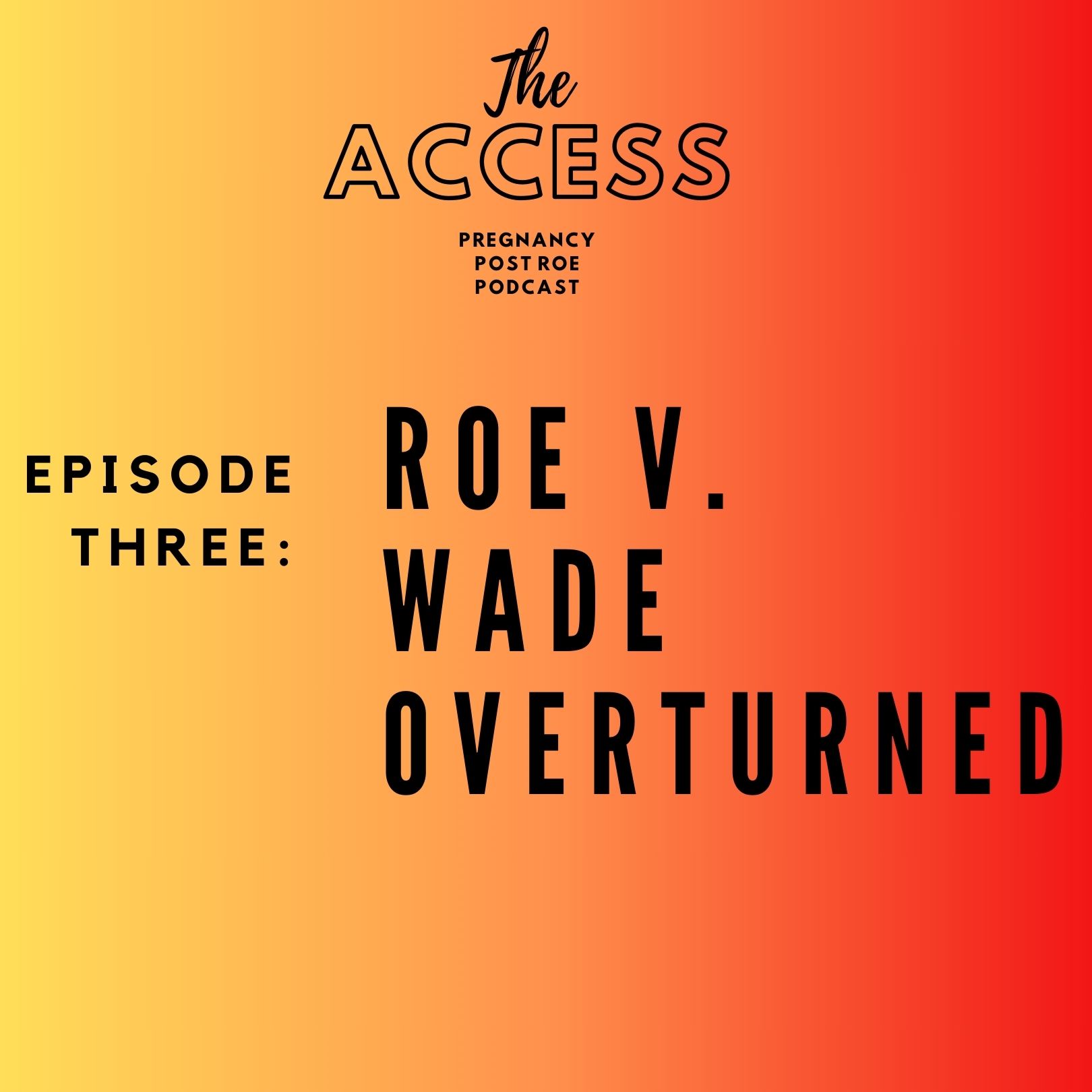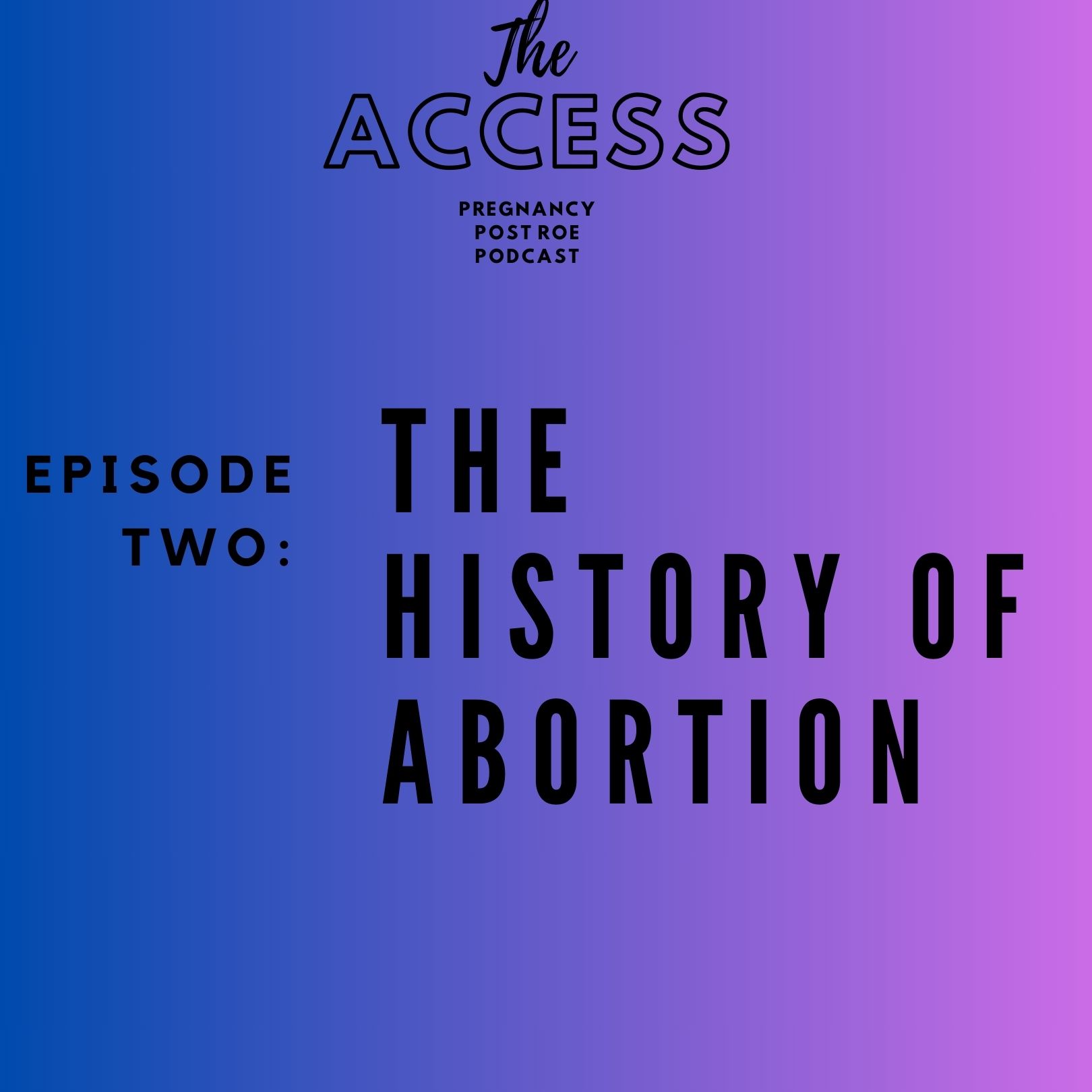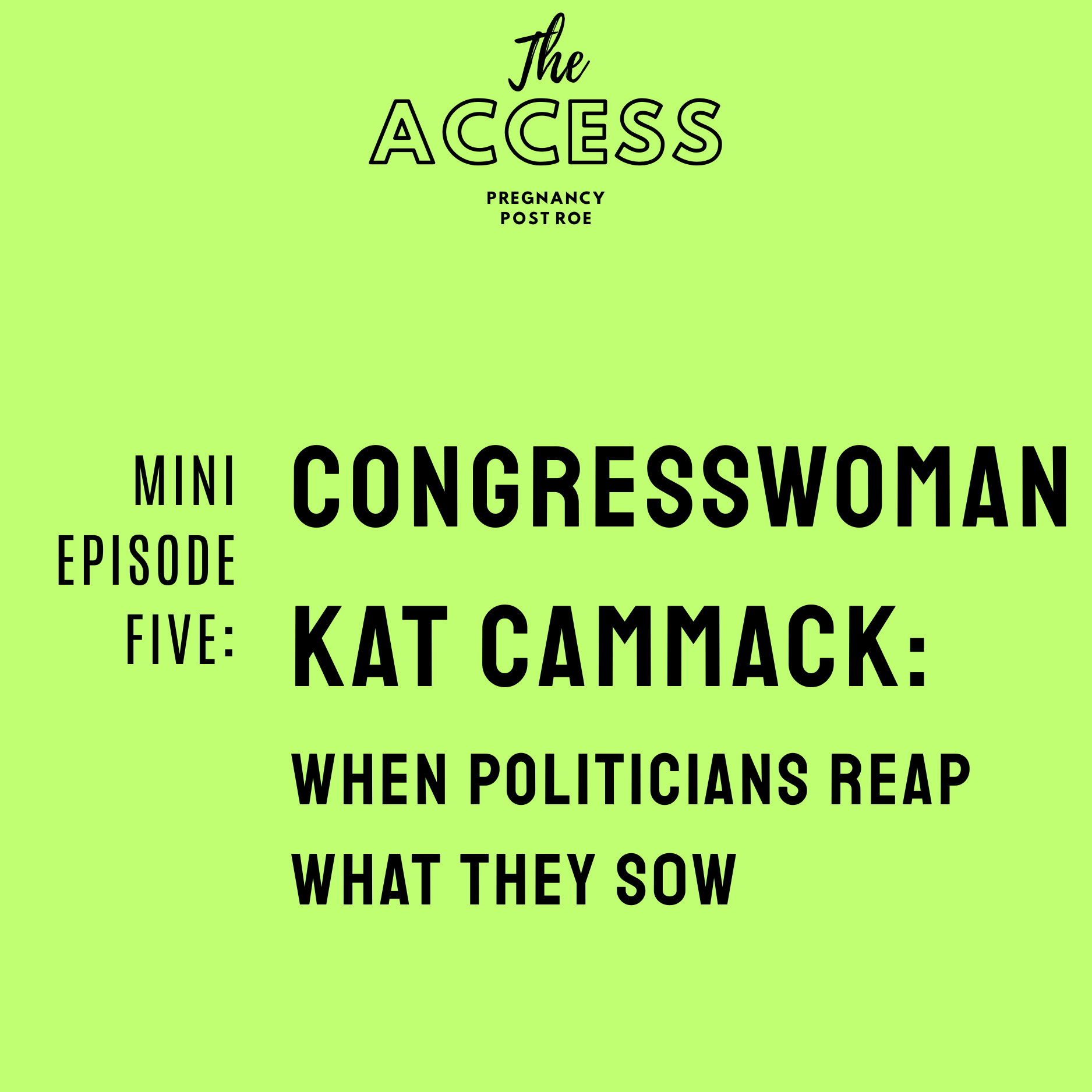Episode Transcript
[00:00:01] Before we begin. This episode contains content that some listeners may find sensitive. Listener discretion is advised.
[00:00:28] This is the Access Pregnancy Post Row Podcast and I am Mia Braun when people are seeking reproductive health care, they should have access to comprehensive, evidence based, non judgmental health care and information from qualified professionals whether they decide to continue their pregnancy or or seek abortion care.
[00:00:56] Crisis pregnancy centers, also known as Pregnancy Resource Centers, Maternity Wellness Centers or Pro life Pregnancy Centers are nonprofit organizations established by anti abortion groups.
[00:01:12] Crisis Pregnancy Centers or CPCs, are part of a billion dollar industry operating operated by national anti abortion organizations like Care Net, Heartbeat International and Birthright.
[00:01:28] Their primary goal is to persuade pregnant individuals not to have an abortion. They often oppose contraception and comprehensive sexual education as well.
[00:01:42] The evolution of crisis pregnancy centers has played an important role in shaping the political landscape of abortion in the United States.
[00:01:53] After Roe v. Wade was decided in 1973, CPCS played an important part in centering pregnant women within the pro life movement and framing abortion as a byproduct of, quote, an unjust system that did not value motherhood.
[00:02:12] Crisis pregnancy centers proliferated in the 1970s and 80s as accessible spaces for primarily women volunteers to affirm their religious opposition to abortion, reinforce their traditional gender expectations and quote, save other women from harms of abortion.
[00:02:36] As obgyns and and abortion clinics have fled anti abortion states, conservatives state that crisis pregnancy centers can fill in the gap.
[00:02:48] These centers are growing at an alarming rate as they already outnumber real health clinics by three to one.
[00:02:57] Today the country has an estimated 2,500 to 4,000 operational CPCs, which is triple the number of abortion clinics which see over 1 million patients annually.
[00:03:10] CPCs exist in every state but are largely concentrated in the south and Midwest.
[00:03:19] A lot of money has been funneled into these centers since the Dobbs decision.
[00:03:25] In Tennessee, they boosted their state support from 3 million to 20 million.
[00:03:31] Florida raised their funding from 4.5 million to 25 million.
[00:03:36] Texas has also increased its giving from 5 million every two years to 100 million for 2022 and 2023.
[00:03:47] Republicans are investing heavily in these centers largely because they are anti birth control.
[00:03:54] Russell Vaught was confirmed as Director of the Office of Management and Budget.
[00:04:00] Ending all abortions is a central issue for Vought. He's a main architect of Project 2025.
[00:04:08] He will now have the power to fund fake abortion clinics through the President's budget and reject any agency rules that advance reproductive health care.
[00:04:22] Crisis pregnancy centers offer pregnancy tests to confirm pregnancy, STI testing and ultrasounds, which are often non diagnostic and performed by non medical personnel intended to encourage carrying the pregnancy to term.
[00:04:41] Free ultrasounds are often a particularly strong and problematic enticement, especially since this service can otherwise be financially prohibitive and difficult to access.
[00:04:56] These images are frequently non diagnostic and often obtained by an untrained, unlicensed staff.
[00:05:04] The practice can be deliberately or inadvertently misleading or dangerous when clients receive inaccurate gestational age dating or if CPC staff miss a diagnosis that such as an ectopic pregnancy.
[00:05:24] Crisis pregnancy centers offer counseling that is focused on discouraging abortion and promoting parenting or adoption, which can sometimes involve misinformation.
[00:05:38] CPCs sometimes offer limited material resources like baby clothes or diapers, which are tied to participation in their programs.
[00:05:49] These free services are often cited as the primary reason clients interact with CPCs.
[00:05:56] They also provide referrals for prenatal care, adoption agencies and social services, but not for abortion providers.
[00:06:06] Most CPCs are not subject to the same medical and ethical standards standards as licensed healthcare facilities and their staff often lack medical training.
[00:06:20] Staff members at these unregulated and often non medical facilities have no legal obligation to provide pregnant people with accurate information and are not subject to HIPAA or required by law to maintain client confidentiality.
[00:06:39] Crisis pregnancy centers will falsely represent the facility as a legitimate health care clinic that offers comprehensive and unbiased reproductive health care by selecting names similar to those of legitimate clinics, setting up near reproductive health clinics, and misrepresenting non medical staff and volunteers as clinicians by having them wear lab coats and perform ultrasounds.
[00:07:11] Critics argue that CPCs often use misleading advertising and tactics to attract pregnant individuals, sometimes creating confusion with abortion clinics.
[00:07:25] According to the American College of obstetricians and gynecologists, CPCs are using digital marketing tactics to target people seeking information about abortion care.
[00:07:39] Other misleading practices include advertising online using keywords such as abortion clinic, and manipulating web search data to appear in searches for abortion clinics despite not providing abortion care.
[00:07:56] According to the data, 71% of crisis pregnancy centers use deceptive means such as spreading thoroughly debunked information like inaccurate data about the risks of abortion and the effectiveness of contraception, while 38% do not clearly state on their homepage that they do not provide abortion care.
[00:08:23] Many CPC staff also use false and misleading information, emotional manipulation and delays to divert pregnant people from accessing comprehensive and timely care from patient centered, appropriately trained and licensed medical professionals.
[00:08:43] Some of the tactics they use are as follows.
[00:08:47] They provide false risks of abortion, saying that there are links between abortion and breast cancer, infertility, mental illness and preterm birth Another tactic they will use is intentionally overestimating a person's gestational age and suggesting that they are beyond the local legal limits for accessing abortion.
[00:09:12] They use disturbing visuals or perform ultrasounds to emotionally manipulate and shame pregnant people under the guise of informing or diagnosing them.
[00:09:25] Staffers will also downplay the impact of pregnancy and childbirth on people's lives and health.
[00:09:34] By not providing or referring for abortion, crisis pregnancy centers can delay individuals from accessing timely abortion care.
[00:09:45] Preventing abortion care is not the only threat that CPCs pose.
[00:09:50] CPCs endanger public health by intentionally creating delays that can leave people unable to access abortion care in their communities, forcing them to continue their pregnancies.
[00:10:04] We see this especially in states with gestational age bands.
[00:10:09] Crisis pregnancy centers can cite high rates of miscarriage as a reason to wait and see before seeking an abortion, which again can delay care.
[00:10:22] Critics suggest that crisis pregnancy centers often target young women, women of color and low income individuals.
[00:10:32] CPC targeting tactics include offering free services and pregnancy and parenting support.
[00:10:39] They will sometimes offer material resources such as baby clothes or formula in exchange for attending abstinent only teachings and parenting programs.
[00:10:51] It's important to Note that while CPCs present themselves as resources for pregnant individuals, their primary aim is to prevent abortion and they typically do not provide or refer for the full range of reproductive health care options.
[00:11:11] Most people understand that crisis pregnancy centers are anti abortion, but what most do not realize is that these centers are also anti contraception.
[00:11:24] These centers cannot prescribe contraception and their staff is not allowed to even discuss birth control or refer women to places that offer these types of services.
[00:11:37] As people are seeking medical advice, it is important to note and check the signs of anti abortion clinics whether it is online or in person.
[00:11:48] When looking at the web, people should be aware that anti abortion centers may not readily reveal that they are unlicensed and do not provide abortions.
[00:11:59] These centers may also pay to show up in Google searches alongside legitimate medical clinics if visiting in person. It should be noted that oftentimes crisis pregnancy centers will have non medical volunteers wearing scrubs around the office and offer only limited medical services like ultrasounds.
[00:12:24] CPCs will not ask you to sign a HIPAA agreement.
[00:12:28] These sites may offer so called abortion pill reversal which is not supported by science.
[00:12:36] CPCs may push abstinence only beliefs and teachings or offer counseling that encourages people to become parents and or give their baby up for adoption. They discourage abortion while using fear mongering tactics.
[00:12:54] They will repeatedly and mistakenly link abortion to cancer, infertility, mental illness or health problems These clinics will also dismiss or deny that contraceptives and other safe sex practices are effective in preventing pregnancy.
[00:13:14] They may try to talk about religion even when you do not want to. They may say judgmental things about sex before marriage or single parenting, LGBTQ people or people of color.
[00:13:28] Most importantly, these CPCs will not offer or refer for abortion care.
[00:13:35] Abortion care is part of all options counseling and should be a part of an open discussion with a healthcare provider if this is an option in your state.
[00:13:48] Crisis pregnancy centers should be held accountable for their deceptive practices.
[00:13:54] Policymakers should take steps to address these harmful practices and ensure that pregnant people have access to comprehensive, timely, transparent and ethical pregnancy care and information.
[00:14:09] They can ensure that government funding goes only to legitimate health care organizations that provide comprehensive, medically accurate and non directive counseling and referrals.
[00:14:23] Policymakers should also hold CPCs accountable for their deceptive practices, such as enforcing and strengthening consumer protection laws against false and misleading advertising, while also investigating the pervasiveness and impact of deceptive practices on patients.
[00:14:44] Lastly, policymakers should invest in legitimate comprehensive reproduction health services and expand insurance coverage for abortion services and contraceptives.
[00:14:58] Crisis pregnancy centers distract and divert pregnancy pregnant women from the legitimate medical system to promote their ideological ends.
[00:15:10] For patients who are considering pregnancy termination, crisis pregnancy centers not only misrepresent the health risks of abortion, but also may intentionally lie to their clients by reporting incorrect gestational ages of their pregnancies. At best, this tactic forces an increase in second trimester abortions which are harder to obtain, more expensive and less safe than abortion in the first trimester. At worst, it prevents patients from accessing abortion altogether, a situation that will become more common as abortion becomes more difficult to access, thus robbing them of their reproductive autonomy.
[00:15:58] Crisis pregnancy centers or maternal wellness centers are a unique and disconcerting hybrid of anti choice activism, religious propagandism and pseudo medical practice.
[00:16:14] CPCs are fundamentally unethical and undermined the respect for human life that they claim claim to protect.
[00:16:23] The government faces significant barriers to implementing the regulation of crisis pregnancy centers.
[00:16:31] As states across the country threaten to severely restrict and in some cases eliminate access to abortion, efforts to limit the influence of CPCs will become vital. Real health centers are open and upfront about their services.
[00:16:52] They will help you get the care you need. They will not pressure you to make certain decisions about sex, birth control or pregnancy.
[00:17:03] Real health centers give you honest facts about all of your options without scare tactics, shame or judgment.
[00:17:12] This will allow you to make a decision that is right for you.
[00:17:17] We will have a list of websites in our show notes that you can use to verify which clinics are crisis pregnancy centers or real healthcare centers near you.
[00:17:31] Our next mini episode will focus on the story of Adrianna Smith, a Georgia woman who was declared brain dead but was reportedly kept on life support to continue her pregnancy due to Georgia's restrictive abortion law.


